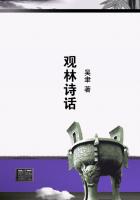The labourers form the mass of every community. The inquiry into the causes affecting wages is, therefore, the mostimportant branch of political economy. In the following Lectures I propose, first, to explain some ambiguities in the termshigh and low wages; secondly, to state the proximate cause which regulates the amount of wages; and lastly, to exposesome prevalent errors respecting that cause; leaving the remoter causes, the cause of the proximate cause, for discussion ina subsequent course.
Wages are the remuneration received by the labourer in recompense for having exerted his faculties of mind and body; andthey are termed high or low, in proportion to the extent of that remuneration. That extent has been estimated by threedifferent measures; and the words high and low wages have, consequently, been used in three different senses.
First . Wages have been .termed high or low, according to the amount of money earned by the labourer within a givenperiod, without any reference to the commodities which that money would purchase; as when we say that wages have risensince the reign of Henry VII, because the labourer now receives 1 s. 6d. or 2.s. a day, and then received only 4絛.
Secondly . They have been termed high or low, according to the quantity and quality of the commodities obtained by thelabourer, without any reference to his receipts in money; as when we say that wages have fallen since the reign of HenryVII, because the labourer then earned two pecks of wheat a day, and now earns only one.
Thirdly . They have been termed high or low, according to the share or proportion which the labourer receives of theproduce of his own labour, without any reference to the total amount of that produce.
The first nomenclature, that which measures wages simply by their amount in money, is the popular one. The second, thatwhich considers wages simply with reference to the quantity and quality of the commodities received by the labourer, or tospeak more correctly, purchaseable with his money wages, was that generally adopted by Adam Smith. The third, thatwhich considers wages as high or low, simply with reference to the labourer's share or proportion of what he produces,was introduced by Mr. Ricardo, and has been continued by many of his followers.
This last use of the words high and low wages has always appeared to me one of the most unfortunate of Mr. Ricardo'smany innovations in the language of political economy. In the first place, it has a tendency to withdraw our attention, evenwhen we arc considering the subject of wages, from the facts which most influence the labourer's condition. To ascertainwhether his wages are high or low, we are desired to inquire, not whether he is ill or well paid, -- not whether he is well orill fed, or clothed, or lodged, or warmed, but simply what proportion of what he produces comes to his share. During thelast four or five years, many a hand-weaver has received only 8s. 3d. for producing, by a fortnight's exertion, a web that thecapitalist has sold for 8s. 4d. A coal-merchant often pays his men two guineas a week, and charges his employers for theirservices two guineas and a half. But, according to Mr. Ricardo's nomenclature, the wages of the weaver, at 4s. 1絛. aweek, are much higher than those of the coal-heaver at two guineas, since the weaver receives 99 per cent of the value ofhis labour, while the coal heaver had only 80 per cent.
And, even if the nomenclature in question were free from this objection -- even if the point on which it endeavours to fixthe attention were the most important, instead of being the least important. incident to wages, it still would be inconvenientfrom its obscurity. No writer can hope to be consistent in the use of familiar words in a sense always different from theirestablished meaning, and often directly opposed to it; still less can he hope to be always understood. Even Mr. Ricardo,though he professes to mean by high wages a great proportion, has in several places considered them as productive ofconsequences which would follow only if they signified a great amount. And his followers and opponents have, almostuniformly, supposed those words to mean a great amount. Since the publication of Mr. Ricardo's work, it has beenreceived as an axiom, among the dabblers in political economy, that, according to the established doctrines of the science,high wages and high profits are incompatible; and, therefore, that either the leading doctrines of political economy are false,or the interests. of the labourer and the capitalist are always directly opposed to one another. The former opinion has beenadopted by the large class who do not attend to what they read; the latter, by the still larger class who do not attend towhat they see.
The two other meanings of the words high and low wages, that which refers to the money, and that which refers to thecommodities, received by the labourer, are both equally convenient, if we consider the rate of wages at the same time andplace; for then they both mean the same thing. At the same time and place, the labourer who receives the highest wagesnecessarily receives the most commodities. But when we refer to different places, or different times, the words high or lowwages direct the attention to very different subjects, as we understand them to mean more or less in money, or more or lessin commodities. The differences which have taken place in the amount of money wages at different times, inform us ofscarcely any thing but the abundance or scarcity of the precious metals at those times: facts which are seldom of muchimportance. The differences in the amount of money wages in different places at the same time, are of much moreimportance, since they indicate the different values of the labour of different countries in the general market of the world.















